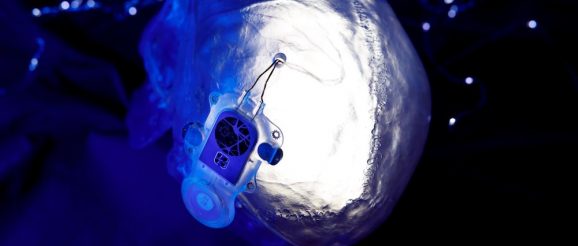Research consortium receives grant for device for locked-in syndrome – Med-Tech Innovation

The researchers aim to develop a fully implantable Brain-Computer Interface (BCI) system for people with locked-in syndrome (LIS) – a condition in which paralysis severely limits communication. The BCI will be unprecedented in its small size, wireless and powered via induction so will not require batteries. Suitable for use at home, it will be capable of decoding speech in real-time to enable people with LIS to communicate with family and caregivers.
The project will further develop the Wyss Center’s fully implantable wireless ABILITY system to connect to customised electrocorticography (ECoG) electrode grids, developed by CorTec, that detect brain signals from the surface of the brain. The ambitious timeline aims for full implant development and verification in the first two years of the project, with the second two years focusing on clinical studies and algorithm improvements to restore communication in locked-in patients with amyotrophic lateral sclerosis (ALS) or brainstem stroke. ALS is a progressive neurodegenerative disease in which people gradually lose the ability to move and talk, eventually all means of communication are lost, leaving patients isolated. Brainstem stroke can render people unable to speak or move, without recovery.
Prof. Dr. Gernot Müller-Putz, head of the Institute of Neural Engineering and its associated Laboratory of Brain-Computer Interfaces at the Graz University of Technology, said: “As a first step to enable the patients to interact with the system, we will set up the decoding for mouse clicks and cursor control from intended movements, which we have shown to be feasible in previous research.”
“Our BCI system will go far beyond current technology,” said Prof. Nick Ramsey from the UMC Utrecht Brain Center, the Netherlands, who coordinates the project. “We want to create a sustainable, high-resolution BCI by combining state-of-the-art hardware and software based on artificial intelligence (AI).”
Dr. Jonas Zimmermann, senior neuroscientist at the Wyss Center, said: “This new project builds on the promising preliminary data from our clinical study enabling communication with a completely locked-in participant, and our pre-clinical study currently underway with the wireless, implantable ABILITY device. In this project we will record from a larger area of the brain and explore new decoding algorithms that have the potential to tackle important clinical and social needs for people with ALS but also for those with other neurological conditions that impair movement and communication.”
Dr. Tracy Laabs, chief development officer at the Wyss Center, added: “After several years of prototype developments, this project will allow us to make the crucial final steps that will bring our system to the patient.”
The BCI system will be trailed in two people with locked-in syndrome in the home environment. The brain surface-lining electrode grids will collect high resolution neural data that will be decoded using AI algorithms to translate the brain signals to computer speech in real-time.
The research project ‘Intracranial Neurotelemetry to Restore Communication’ (INTRECOM) is part of the EIC Pathfinder Challenge program in which the European Innovation Council supports visionary, entrepreneurial researchers who have bold ideas for radically new technologies. The Swiss participants receive support from the Swiss State Secretariat for Education, Research and Innovation (SERI).
